|
12/22/2021 Meditations on the transition to socialism 72nd anniversary of the triumph of the Chinese revolution. By: Carlos Alarcón Aliaga- Translated By: Valeria BacaRead NowWe have read Domenico Losurdo’s article “Has China turned to capitalism? Reflections on the transition from capitalism to socialism” published in Horizontes del Sur and it has raised the following ideas that we believe are important to share because we hold the opinion that there is a feeling of defeat among Marxist socialists when they refer to the socialist experiences of the 20th century. At the most opportune time because of October 1, which is the anniversary of the triumph of the Chinese Revolution, celebrating 72 years of struggle to build socialism, and those who have set themselves the goal of achieving it on the centenary of their revolution. Capitalism and imperialism had a great victory with the collapse of the Soviet Union, but, they also had another great victory with the ideological defeat of the Marxist socialists that live in the capitalist bloc. Defeat self-inflicted largely by the misunderstanding of the socialist processes and by a dogmatic appreciation of the communist ideals that should be imposed or “applied” at any time or place with the sole purpose of taking power. In this way, the proletariat and the peoples of the world have been politically and ideologically disarmed and thus had to resist, in their own way, the bourgeois aggressions as a result of the economic crisis of 2007-2008, and now they must do the same in the face of a new crisis aggravated by the global health crisis of the coronavirus, more due to the responsibility of the governments that prefer to protect capitalist business before the lives of the people. The proletariat and the people, can still expect to face greater suffering with unpredictable consequences, and very few today consider alternatives that seek to overcome capitalism. In this context, Losurdo encourages us to reflect on the socialist experiences of the Soviet Union and the People’s Republic of China, without having previously condemned them as "bourgeois," "bureaucracies," "state capitalists" or "revisionists." “Real socialism” or “socialist construction" 100 year anniversary of the PPCH First, Losurdo begins by raising the problem of the so-called “real socialism.” Strictly, they are not capitalist, but neither are they socialist, they are processes of transition from capitalism to socialism. A heroic stage in which the proletariat, with their leaders at the head, dare to transform the world in very difficult conditions, much more in countries of backward and “dependent” capitalism such as the cases of Russia and China, then Cuba, Vietnam and, lately, Venezuela, for which there was no past experience or manual that outlines how to do it. In this way, Losurdo does not want to use the term "real socialism." In fact, the term leads to consider that these processes are actually socialism; real socialism is like that and not as it was outlined in its generality by Marx, Engels and Lenin and other revolutionary communist thinkers. In this transition process and under such conditions mistakes were made and will continue to be made; but that does not induce Losurdo to condemn the revolutions in Russia and China as revisionists and begins by recognizing the existence of a will to build a socialist society. This consideration is extremely important to study these experiences, because it places us in the intentionality of their actors, of what they want to achieve. All revolutionary experiences have a clear direction: socialism and communism. The problem they have to solve is how to achieve these ends. Only in this sense are they socialist countries. Socialism is not the collectivization of poverty Soviet Economy The author rightly considers that socialism is not the collectivization of poverty. Socialism for Marx is completely feasible because the development of the productive forces within capitalism have made it attainable. For Marx, the suppression of social inequality, the differentiation of manual and intellectual work, of the countryside and city, etc. is possible on condition of a high degree of development of the productive forces and of abundance, that allow the integral development of people. The Bolshevik Party never set out to make communism in poverty, therein its great initial hope of a worldwide revolution and that the advanced countries would support them in developing their productive forces and technological capacities. However, when the revolution in Germany failed, socialist construction had to start under the most adverse conditions. What is important about this situation, is that they did not collapse or abandon their socialist objective. It was a question, now, of overcoming Russia's backwardness and the famine generated by the world war and the civil war with its own means. This explains the New Economic Policy (NEP) and then the five-year plans, but from the perspective of the idealist left they saw in this process, a reversal; towards capitalism. China's Economy On the other hand, we do not like the qualifier of "populist" that Losurdo uses in his analysis, because it is confused with the "bourgeois populism" used to gain a foothold in government, and because the position in the Bolshevik party was not to pretend to flatter the masses, rather, they placed the communist ideal before concrete reality. Likewise, Pierre Pascal uses this term in reference to the people and from his Catholic logic sympathetic to socialism. His socialism is one of the original Christian communities in which the rich stripped themselves of all their wealth to live in a community of poor people and make themselves worthy of the kingdom of God. The staggering economic development of the Soviet Union in Stalin's time is economically comparable to that of China, but they are two different ways of making the transition. The common thing in both is the socialist objective, the leadership of the communist parties and the planning in all these processes. The welfare of the workers and the real recognition of rights in the Soviet Union are incomparable to any other capitalist country. The heroic role of the proletariat in the construction of the socialist homeland In the soviet experience, from the time of Stalin, a key element for its development was the ideological conviction of the Russian proletariat and of the entire people that they were building a new society, a new world. This primordial fact in the Soviet experience almost no one considers. Without it, it would have been impossible to win the civil war and overcome the famine in the first decade of the Bolshevik revolution and undoubtedly, Russia would not have gone from being a backward country to being the second world economic power, let alone having defeated the Nazi army during WWII. All this is achieved with an iron consciousness of class and confidence in their leaders, which endows men with the spirit of struggle and sacrifice to knock down all obstacles. This heroic deed has marked Russian society and now capitalism is powerless to remove it from history. But, also, this story is part of the story of the world socialist revolution. Losurdo explains the fall of the Soviet Union due to the anarchy of production within Soviet companies, but that contrasts with the tight political control of society. It is a phenomenon that has not yet been clarified and it should be studied further. On the same line, the reading reminded us of a trip we made to Finland where we had the opportunity to talk with some Uruguayan students who were returning to their homeland before the fall of the Berlin Wall, and agreeing with Losurdo, they commented on the reluctance and the laziness of the workers in their daily work and they explained it by saying: “since they have everything and they know that if they are fired they have unemployment insurance, and they don't even worry about looking for another job because they know that the State, will do it for them.” None the less, we believe that there are other factors that contributed to the fall of the Soviet Union. It is hypothesized that an underground bourgeoisie not seen or underestimated by the Soviet Union developed. This bourgeoisie, initially small due to its numbers and managing of capital, was tolerated and later ignored, but over the years its power grew, obtaining favors from the State, corrupting officials and also the directors of the kolkhoz for the illegal acquisition of seeds, fertilizers, use of machinery, etc., as well as with factories to have privileges, such as, for example, to become suppliers. This situation proliferated in the last decades and it was not so much the differentiation of salaries that corrupted and gentrified the bureaucracy, emerging bourgeois interests to restore private property and be able to do their business freely. A second element is the relaxation of the Communist Party of the Soviet Union (CPSU), which abandoned the control and surveillance of the bourgeois ideological penetration and the fight against corruption, which, practically, they considered non-existent. The ideological struggle and the Marxist formation took a backseat, and apparently it would be an effect of the campaign against Stalin's "totalitarianism." A third element is the action of imperialism, which never accepted the existence of a socialist country, nor will it allow it in the future, and will use all means to overthrow them inside and outside of it. The Soviet Union only emphasized the possibility of an armed invasion and neglected the political and ideological invasion that ended up penetrating the CPSU itself. The quick and easy way in which the USSR collapsed corroborates this; here it was not the popular masses who rebelled against Soviet power. China, the construction of the popular power and the leadership of the Chinese Communist Party (CCP) Losurdo comments on the organization of the popular power, before the seizure of power in 1949, which included the organization of the economy in liberated territories, in which various productive systems were combined, including capitalist relations. In contrast, the terrorist group Sendero Luminoso (SL), which raised the thought of Mao Zedong in Peru, never understood it that way, for them the popular war was only a military action and not a means of building the popular power. In each liberated zone, the CCP assumed the task of directing and organizing the peasant economy, and was even in charge of trading its products outside the liberated zones. On the contrary, SL hampered the peasant economy and prohibited the commercialization of its products as a strategy to supply shortages to the cities. Another central aspect is the understanding that capital settles where it has the conditions to make profits, that is, it invests its capital in the places and at times that ensure high profitability, it does not aim to reduce poverty or social inequalities, nor regional and local development or the protection of nature; hence the social inequalities and backwardness in many regions with peoples that have been forgotten. The spontaneity of the market does not guarantee decentralization or the elimination of poverty and it deepens social inequalities; hence the importance of planning and directing the communist parties in production and the national economy. Losurdo does not comment on these elements, without which it would be impossible to induce the bourgeoisie to contribute to the development of a country, and less to socialism. This is the only way to understand the quote he makes about Mao: “total political expropriation of the bourgeoisie, does not equal total economic expropriation.” In the Soviet Union a bourgeoisie developed that neither the CPSU nor the State saw or gave its due importance and never set out to ally or lead them. However, they developed in the shadows and infected the state, the economy and the CPSU. On the other hand, in China the bourgeoisie is recognized as such and their property and profits are guaranteed in exchange for developing the productive forces, and thus they are politically “neutralized.” This is possible due to the leading role of the State and the CCP and the bourgeoisie that has been playing a role to achieve the goals of each five-year plan. Under such conditions, it is extremely difficult for the bourgeoisie to constitute itself as a class and assault power. But let us not forget that, in the absence of this, imperialism more than makes up for it. In the socialist construction, the workers and all the people cannot lose the historical meaning of their struggle. The 100th anniversary of the Communist Party (Photo by Kevin Frayer) Finally, we must disagree with the following statement by Losurdo: “The policy adopted by Deng Xiaoping, on the other hand, leaves behind a clear historic toll: experience has shown that the totally collectivist economy erases all material incentives and motives for competition, paving the way (as previously seen) for mass disaffection and absenteeism.” First, this sentence, in clear allusion to the Soviet Union, is not so true, because it takes the behavior of the Soviet workers in their last stage and ignores all their glorious history of dedication, of sacrificed work and heroism to face hunger, building the socialist homeland from a backward and war-ravaged country, emerge victorious by defeating the Nazi army in WWII and rebuild the socialist homeland after the war without any help. And the incentives were not lacking, but they were fundamentally of a collective nature, that is why the workers and the Russian people achieved unprecedented well-being, which forced the European bourgeoisie to imitate them to prevent the fall of capitalism. President Xi Jinping by proposing to the Chinese workers to achieve socialism on the centenary of the triumph of the Chinese Revolution, he is giving them direction, a goal to achieve, which is at the base of all their successes despite the COVID-19 pandemic and the world economic crisis. If the workers lose the historical sense of their struggle, they do not see clear the socialist and communist future to build, material incentives are useless because, likewise, they will work reluctantly, they will reduce production, because there will not be incentives for everyone. This is what the Soviet Union wanted to do in the final periods of its life; competition between companies and between workers was encouraged and, despite this, production continued to fall and corruption became uncontrollable. And it is that the economic crisis of the Soviet Union was interpreted to be the same as any capitalist crisis and the measures that were implemented did nothing but bring down the system. The economic crisis of Soviet Russia was different from the capitalist economic crises; in these, there is a lack of money in the pockets of the people to buy all the great bourgeois production, on the contrary, in the Soviet crisis, products were lacking because production continued to decline despite incentives, there was a lack of wheat, a lack of fuel, etc. that the United States consciously refused to sell to deepen the crisis. There is no socialist construction model, it is the heroic creation of the people. As we said, there is no manual on how to organize a socialist society. Marx and Engels envisioned in general terms what a communist society would configure, but they also understood that this society could not be reached immediately, so there would still be a previous stage, socialism, also thought in its general lines. All this is complicated when in reality the socialist construction begins in countries with backward productive forces and with a fierce resistance from capitalism that does not want to succumb; hence, currents arose that proclaim, in an ahistorical voluntarism, that it would have been better not to start it, forgetting that it is precisely the backward peoples who can no longer bear the anguish and suffering that capitalism causes and incites them to rebel. That is why there is no path of socialist construction already laid out. All that has been said leads us to the fact that we should not transform an experience into a dogma, valid for any historical time and place. Socialist construction must remain open to the realities of each country and the historical conditions in which it must develop, while taking into account the lessons that each historical experience of socialist construction leaves behind. AuthorCarlos Alarcón Aliaga This article was originally published in spanish by Instituto Marx Engel of Peru. Archives December 2021
0 Comments
Leave a Reply. |
Details
Archives
July 2024
Categories
All
|
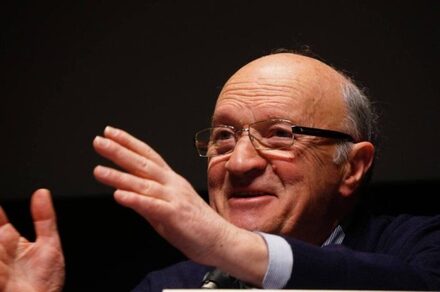
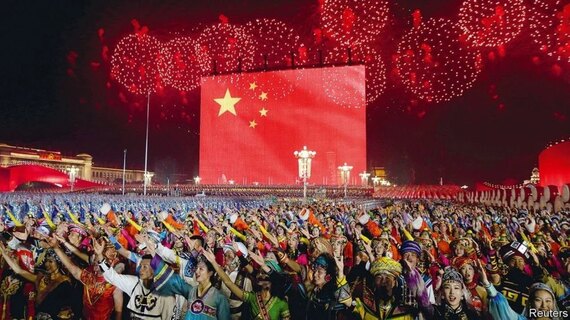
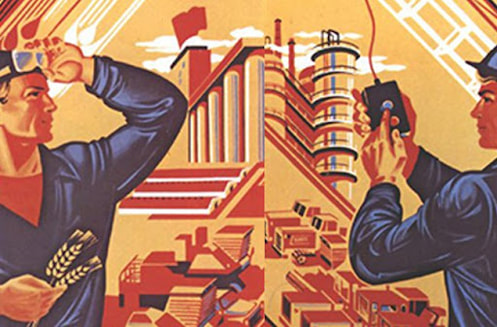
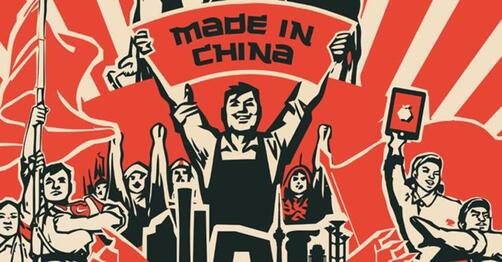
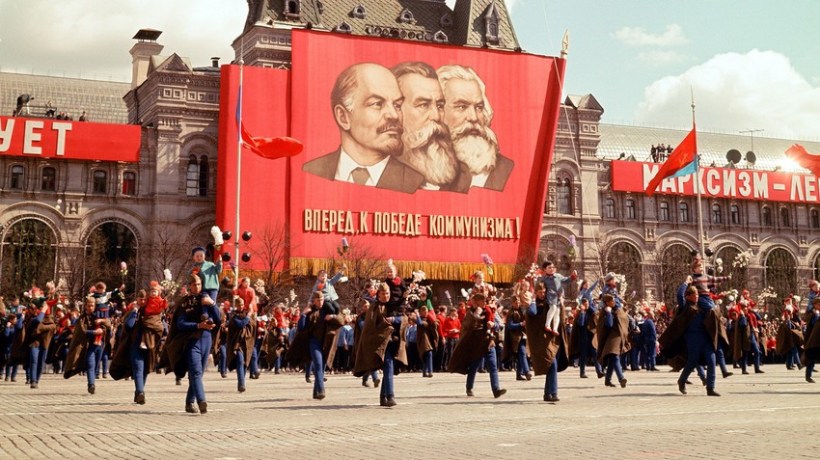
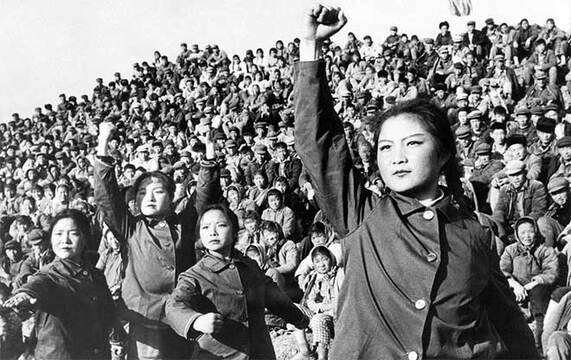
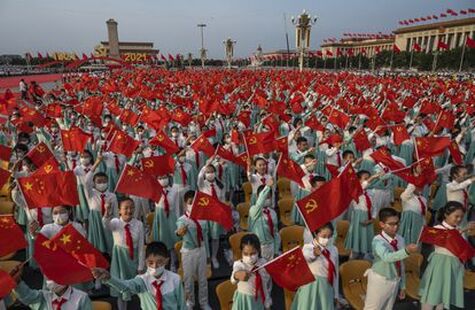
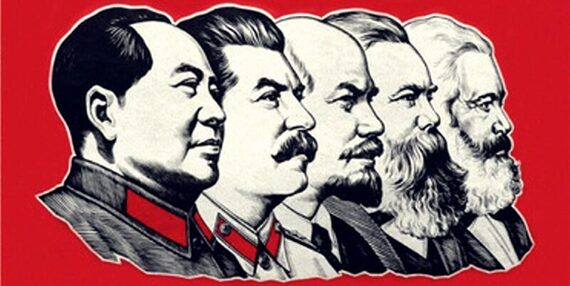
 RSS Feed
RSS Feed